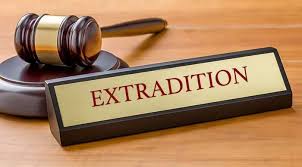State-by-State Analysis of Strict Alcohol Regulations in the U.S.
devadminus
08 October 2525
- extradition,

State-by-State Analysis of Strict Alcohol Regulations in the U.S.
The landscape of alcohol regulations in the United States is a complex tapestry woven with historical, social, and economic threads. Each state adopts its own set of laws governing the sale, distribution, and consumption of alcohol, resulting in a patchwork of regulations that can be surprisingly strict. For a detailed look, you can refer to strict alcohol regulations by state beerconnoisseur.com/blogs/top-8-states-strictest-alcohol-laws-us/ on Beer Connoisseur that highlights the states with the most stringent laws.
Historically, the temperance movement in the early 20th century significantly influenced alcohol regulations. The culmination of this movement was the enactment of Prohibition in 1920, which lasted until 1933. Although the ban on alcohol was lifted, the remnants of this era remained, leading states to maintain strict regulations as a form of social control.
Overview of Regulations
Alcohol laws vary significantly from one state to another. Some states have adopted a more liberal approach, while others enforce strict regulations that govern various aspects of alcohol consumption.
Common areas of regulation include:
- Sales Hours: Many states restrict the hours during which alcohol can be sold, often preventing sales on Sundays or limiting late-night sales.
- Licensing: Obtaining a liquor license can be a complicated and costly process, with many restrictions placed on businesses regarding sales.
- Alcohol Content: Some states impose strict limits on the alcohol content of beverages sold, particularly for beer and wine.
- Public Consumption: Numerous states have laws that prohibit public drinking, impacting festivals, parks, and beaches.
States with Stricter Regulations

According to recent evaluations, certain states are notorious for their rigorous alcohol laws. These include:
1. Utah
Utah is perhaps the most well-known state when it comes to strict alcohol laws. With a strong influence from the Church of Jesus Christ of Latter-day Saints, the state imposes a 4% cap on beer sold in grocery and convenience stores. Additionally, bars must adhere to “Zion Curtain” laws, requiring that all alcohol be mixed behind a barrier, limiting the visibility of alcohol preparation to patrons.
2. Idaho
In Idaho, a complex system governs alcohol sales. The state controls retail liquor sales strictly and prohibits the sale of beer over 12% alcohol by weight in grocery stores. Furthermore, alcohol can only be purchased from state-owned stores, which limits options for consumers.
3. New Hampshire
New Hampshire has a unique approach to alcohol sales, with the state running all the retail liquor stores. While it does not impose a sales tax, there are strict laws on distribution and sales. Additionally, the state has a minimum pricing law that ensures alcohol prices stay high, limiting cheap options.
4. Pennsylvania
Pennsylvania operates under a control system for liquor sales, meaning that only state-run stores can sell wine and spirits. Beer can be purchased from a limited number of outlets, and individuals must buy in larger quantities (often whole cases) to obtain beer, which can complicate casual purchases.

5. Alabama
Alabama residents face a myriad of regulations, including dry counties where alcohol can’t be sold at all. The state is known for its strict Sunday sales laws, and even where alcohol is available, there are restrictions on the types of beverages that can be sold.
The Rationale Behind Strict Regulations
The reasoning behind these stringent alcohol regulations often stems from a variety of factors, including:
- Social Concerns: States with a strong presence of religious communities often maintain stricter laws due to beliefs about the impact of alcohol on societal behavior.
- Public Health: Concerns about alcohol-related health issues motivate some states to impose stricter sales regulations. Limiting access can be viewed as a way to reduce alcohol-related incidents and health problems.
- Economic Factors: The state-controlled systems often raise significant revenue through liquor sales, incentivizing the maintenance of stringent control.
Challenging the Status Quo
Despite the historical and cultural reasons for strict alcohol legislation, there is a growing movement advocating for reform. Many argue that loosening these laws could boost local economies, promote social interactions, and align more closely with modern views on alcohol consumption.
Several states have already begun to amend their laws in response to public demand. For example, in states like Tennessee and Florida, recent legislative changes have expanded access to alcohol sales and allowed more types of businesses to sell alcoholic beverages.
Conclusion
The landscape of alcohol regulations in the United States remains a contentious topic, with a wide variance among the states. As societal norms continue to evolve, it is likely that some states may review and revise their strict regulations. The dialogue surrounding alcohol legislation is vital to ensuring that laws reflect current needs while balancing public health and safety concerns.

